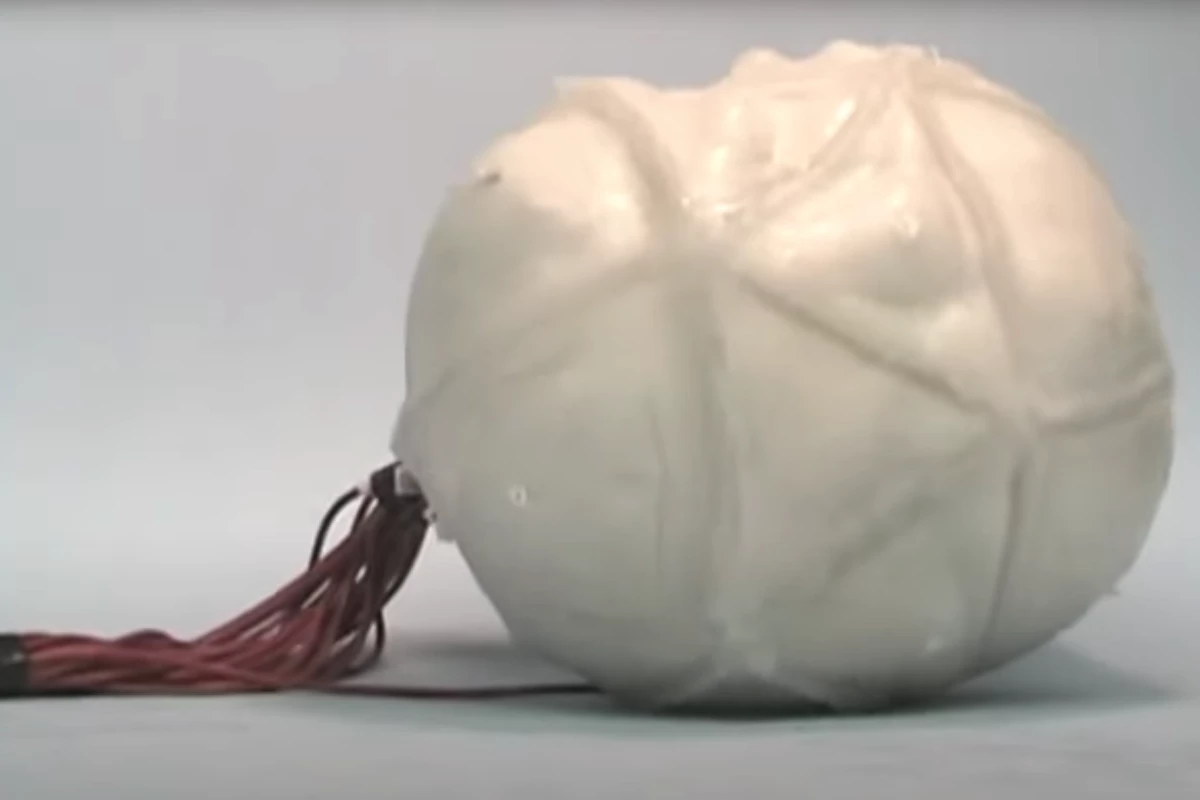We’ve looked at robots that use a variety of ways to get around, from caterpillar treads, to wheels, legs, wings and even combustion-driven pistons. But the title of weirdest (not to mention unsettling) method of robot propulsion we’ve come across has to go to the shape-shifting ChemBot from iRobot. The ChemBot, which looks more like the Blob than most people’s preconceived ideas of what a robot should be, moves around by changing its shape in a process its creators call, “jamming skin enabled locomotion.”
Jamming is a physical process whereby a material is made to transition from a liquid-like to a solid-like state by increasing its density. The ChemBot achieves this process thanks to its hyper-elastic skin composed of multiple cellular compartments. These compartments are filled with air and loosely-packed particles. When the air is removed, the decrease in pressure constricts the skin and the particles shift slightly to fill the void left by the air, resulting in the solidification of the compartment.
Beneath the ChemBot's jammable skin is an incompressible fluid and an actuator that can vary its volume. Unjamming various compartments of the ChemBot’s skin and inflating the interior actuator causes the Chembot's skin to stretch, changing the shape of the robot. It is this method of controlled inflation that allows the ChemBot to roll around.
It should come as no surprise that the ChemBot is the result of US$3.3 million award from the Defense Advanced Research Projects Agency (DARPA) and the U.S. Army Research Office given to iRobot to “develop a soft, flexible, mobile robot that can identify and maneuver through openings smaller than its actual structural dimensions to perform Department of Defense (DoD) tasks within complex and highly cluttered environments.”
The disturbing video below of the ChemBot in action is as it appeared about a year ago, so it’s anyone’s guess how much more creepy the ChemBot is now. Apparently, it has a slightly different design and its creators are working towards including sensors on its body and even connecting multiple ChemBots. Yes, the Blob lives.
Via IEEE Spectrum, DVICE and crave




